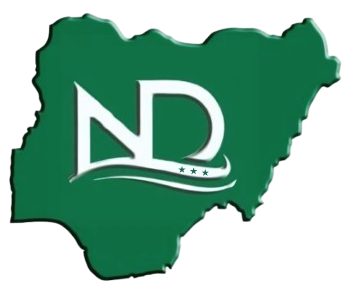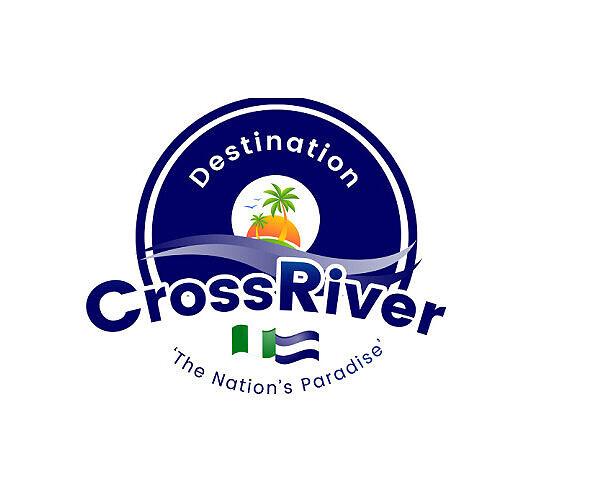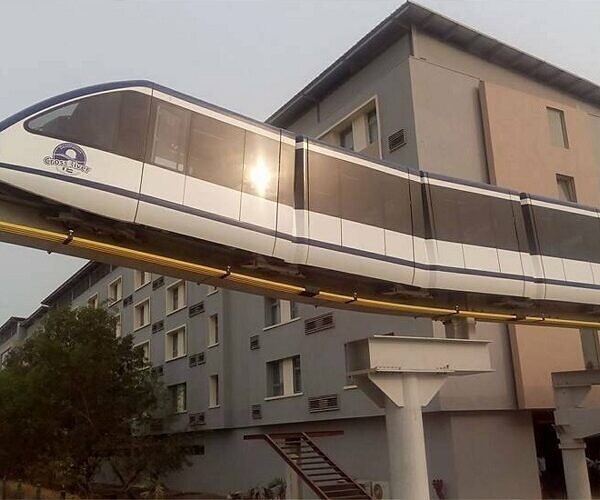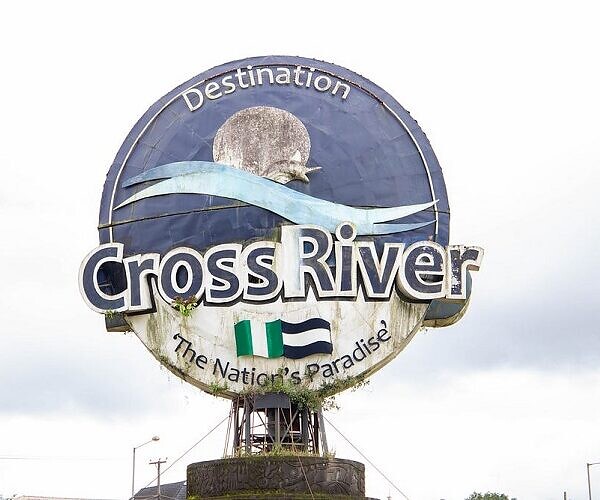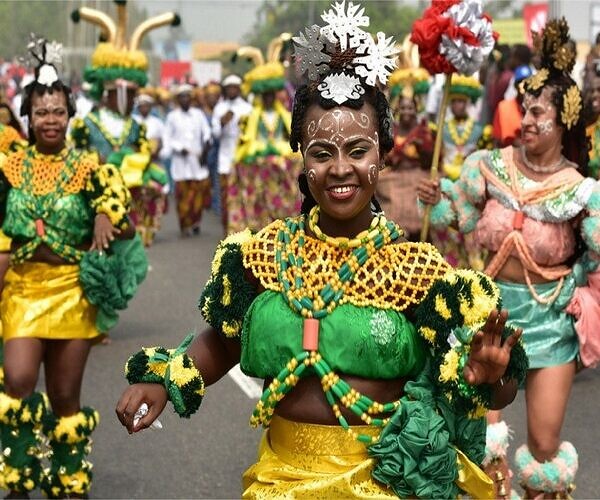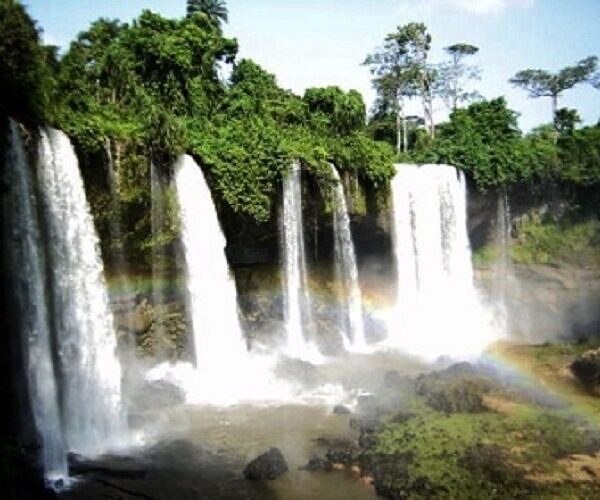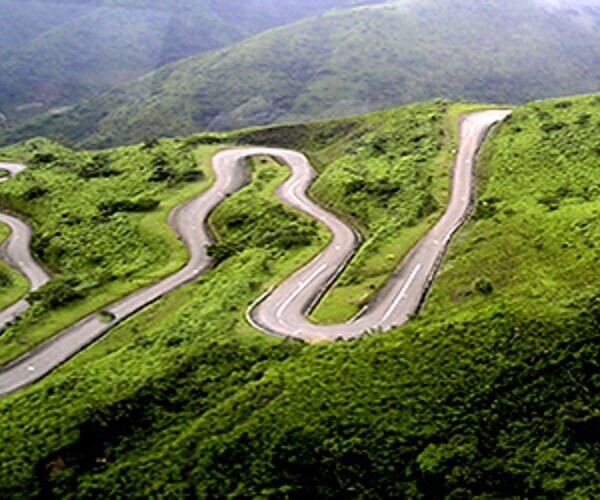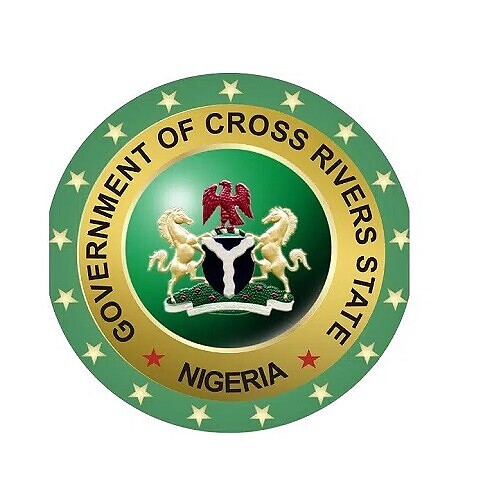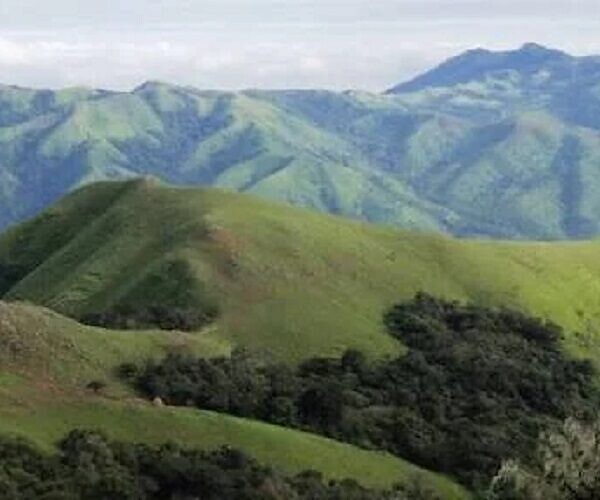- Government Organisation
- Rivers, Nigeria
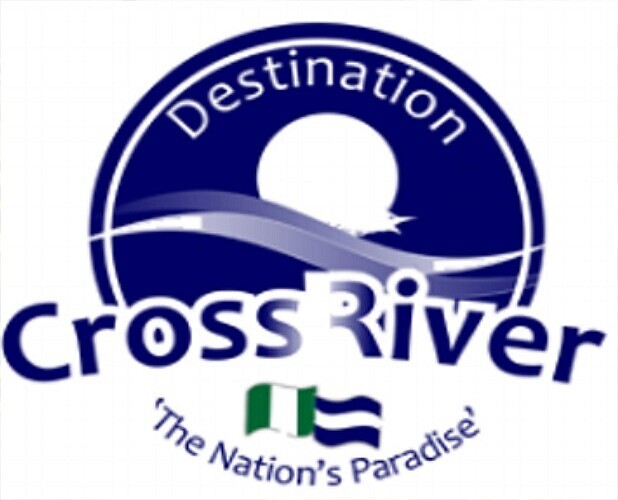
Cross River State
Introduction
Cross River State is located in the South-South geopolitical zone of Nigeria, named after the Cross River that flows through its landscape. The state was established on May 27, 1967, from the eastern part of the Eastern Region, and its capital city is Calabar. Cross River shares borders with Benue State to the north, Ebonyi and Abia States to the west, and Akwa Ibom State to the southwest, while its eastern boundary forms part of Nigeria’s national border with Cameroon. Originally known as South-Eastern State, it was renamed Cross River State in 1976 and included what is now Akwa Ibom State until 1987.
Among Nigeria’s 36 states, Cross River ranks as the 19th largest by area and the 27th most populous, with an estimated population of over 3.8 million (as of 2016). The state’s geography is diverse, ranging from the Guinean forest-savanna mosaic in the far north to the Cross–Sanaga–Bioko coastal forests covering much of the interior.
In the south, the Central African mangroves dominate, while the northeastern area is home to part of the Cameroonian Highlands forests. The state’s namesake river, the Cross River, cuts through its interior and forms much of its western border before flowing into the Cross River Estuary.
Other significant rivers include the Calabar and Great Kwa Rivers, which originate in the Oban Hills and converge near Calabar. Cross River is rich in biodiversity, with protected areas like Cross River National Park, Afi Mountain Wildlife Sanctuary, and Mbe Mountains Community Forest—home to rare species such as the Cross River gorilla, Nigeria-Cameroon chimpanzee, African forest elephant, and drill monkey.
The state is home to a variety of ethnic groups, including the Efik, Ekoi (Ejagham), Akunakuna, Boki, Bahumono, Yakö (Yakurr), Bekwarra, Ogoja, Bette, Igede, and Ukelle (Kukele). Historically, the Efik people of Calabar were instrumental in the formation of the Akwa Akpa (Old Calabar) city-state, which later became part of the British Oil Rivers Protectorate in 1884. British colonial control extended over the region in the early 1900s, integrating it into Southern Nigeria, and later British Nigeria. Calabar, with its strategic port, became a hub of trade and anti-colonial resistance, notably during the Women’s War.
Following Nigeria’s independence in 1960, Cross River State was part of the Eastern Region until 1967, when the region was divided and it became part of South-Eastern State. During the Nigerian Civil War (1967-1970), Calabar was a key battleground, especially during Operation Tiger Claw, and its residents, primarily non-Igbos, suffered under Biafran forces. After the war, the state was renamed Cross River in 1976, and in 1987, Akwa Ibom State was carved out of it. Cross River also once contained the oil-rich Bakassi Peninsula, which was ceded to Cameroon in 2008 under the Greentree Agreement.
The economy of Cross River State is largely agricultural, with key crops including cocoyam, rubber, oil palm, yam, cocoa, cashews, and plantains. Fishing is also a major livelihood. Tourism is an emerging sector, with attractions such as the Obudu Mountain Resort, the Calabar Carnival, and the historic Ikom Monoliths. Cross River State also has a relatively high Human Development Index and boasts several tertiary educational institutions.
Historical Background
Cross River State, located in Nigeria’s South-South geopolitical zone, was established on May 27, 1967, by the regime of General Yakubu Gowon. Originally formed from the Eastern Region, the state was known as the South-Eastern State until 1976, when General Murtala Mohammed renamed it Cross River State during a nationwide state creation exercise. In 1987, Cross River underwent a significant transformation when its western portion was excised to create Akwa Ibom State under General Ibrahim Babangida’s regime. The movement for this state creation had started as early as 1980, with Senator Joseph Oqua Ansa leading the charge for the formation of Akwa Ibom during President Shehu Shagari’s administration.
Historically, Cross River State has played a pivotal role in Nigeria’s colonial and post-colonial eras. Its capital, Calabar, served as a major center for trade, diplomacy, and cultural exchange during the colonial period. The strategic importance of Calabar, located along the Cross River and near the Atlantic coast, made it a bustling hub for maritime trade and political influence. It also became a focal point of resistance against British colonial rule, as seen in notable events like the Women’s War of 1929.
The Nigerian Civil War (1967–1970) had a profound impact on the state. Although Cross River’s population was largely non-Igbo, it became entangled in the conflict due to its geographic location. Calabar, in particular, was a crucial site of military engagement, with the Nigerian army fighting to reclaim the city from Biafran forces in Operation Tiger Claw. Despite the challenges, the state remained a key part of Nigeria’s reunification efforts after the war.
In modern times, Cross River State has developed into an economically and culturally significant region. Its economy is driven by agriculture, with major crops like cocoa, oil palm, yams, cashews, and cocoyams forming the backbone of rural livelihoods. The state is also a prominent tourism destination, boasting attractions such as the Calabar Carnival, Obudu Mountain Resort, and the Cross River National Park. These sites, along with the historic Ikom Monoliths and the state’s diverse wildlife reserves, attract tourists from within and outside Nigeria.
Cross River State is also known for its ecological richness, with a landscape that ranges from the Cross River Estuary in the south to the Cameroonian Highlands forests in the northeast. The state’s protected areas, such as the Cross River National Park and Afi Mountain Wildlife Sanctuary, are home to some of the country’s rarest species, including the Cross River gorilla, African forest elephant, and Nigeria-Cameroon chimpanzee.
Culturally, Cross River State is a melting pot of ethnic groups, including the Efik, Ekoi (Ejagham), Yakurr, Boki, and Bekwarra, each contributing to the state’s rich heritage. In the pre-colonial period, the Efik people, based in Calabar, established the city-state of Akwa Akpa, which later became a British protectorate. This history of trade and interaction with foreign powers continues to shape the identity of the region.
Today, Cross River State is recognized not only for its historical significance but also for its ongoing contributions to Nigeria’s socio-economic development. Its commitment to preserving its natural resources, promoting tourism, and fostering cultural pride has made it a unique and dynamic part of the Nigerian federation, blending a rich past with forward-looking aspirations.
Geography
Cross River State takes its name from the Cross River, which flows through its landscape. Situated in the Niger Delta region, it spans an area of approximately 20,156 square kilometers, making it a coastal state with diverse geographical features. The state shares its northern border with Benue State (188 km/117 miles), while to the west, it is bordered by Ebonyi (198 km/123 miles) and Abia (52 km/32 miles) states, with parts of these borders crossing the Cross River.
To the east, Cross River shares a 290 km (181 miles) boundary with the Sud-Ouest Province of Cameroon, with natural features like the Sankwala Mountains and Akwayafe River defining part of this frontier. The southern boundary includes a 114 km (71 miles) border with Akwa Ibom State and the Atlantic Ocean. Cross River State is made up of 18 Local Government Areas, each contributing to its rich cultural and geographical diversity.
Climate
Cross River State experiences a tropical climate characterized by high humidity. The state’s average temperature ranges from 15°C to 30°C (59°F to 86°F), although specific areas, such as the high-altitude Obudu Plateau, record lower temperatures between 4°C and 10°C (39°F to 50°F) due to its elevation. Calabar, the state capital, experiences significant rainfall throughout the year, with only a brief dry season.
The state’s average annual rainfall is around 3,306 mm (130.2 inches), creating a lush environment conducive to agriculture and supporting its rich biodiversity. The coastal and inland areas of the state experience different climatic variations, making it one of Nigeria’s most ecologically diverse regions.
Demographics
Cross River State is home to a rich tapestry of ethnic groups, including the Efik, Ejagham, Yakurr, Bahumono, Bette, Yala, Igede, Ukelle, and Bekwarra, among others. The four major languages spoken are English (the official language), Efik, Bekwarra, and Ejagham. Efik, in particular, is widely spoken in the southern parts of the state, especially in the Greater Calabar area, which includes Local Government Areas (LGAs) like Calabar Municipality, Calabar South, Akpabuyo, Bakassi, Akamkpa, Biase, and Odukpani. Ejagham, another widely spoken language, is predominant in areas like Odukpani, Biase, Akamkpa, and parts of Calabar Municipality.
The Efik-speaking people mainly inhabit the southern senatorial district, referred to as the Greater Calabar district. This area includes LGAs such as Calabar Municipality, Calabar South, Bakassi, Akpabuyo, Biase, Odukpani, and Akamkpa. Additionally, the Qua community in Calabar speaks Ejagham. Beyond this region, the Yakurr, Agoi, and Bahumono ethnic groups reside primarily in Yakurr and Abi LGAs, while the Mbembe people are concentrated in Obubra LGA.
In the central and northern parts of the state, various sub-dialects flourish. Etung, Olulumo, Ofutop, Nkim/Nkum, Abanajum, Nseke, and Boki are spoken in LGAs such as Ikom, Etung, and Boki. The Yala, Yache, Igede, Ukelle, Ekajuk, Mbube, Bette, Bekwarra, and Utukwang people live predominantly in Ogoja, Yala, Obudu, Obanliku, and Bekwarra LGAs. Among these, the Yala are a subgroup of the Idoma nation, with some Igede-speaking people believed to have migrated from Benue State.
In Cross River North, Bekwarra is one of the most widely spoken languages and is understood by other tribes in the district. Alongside Efik and Ejagham, it is also used in news broadcasts on state-owned radio and TV stations. Despite the linguistic diversity, all indigenous languages in Cross River State belong to the Niger-Congo language family, reflecting their common linguistic heritage.
Cross River State also hosts the largest carnival in Africa, the Calabar Carnival, which showcases the state’s cultural plurality and vibrancy.
Religion
The majority of Cross River State’s population practices Christianity, with a minority following indigenous ethnic religions. The Catholic Church plays a significant role in the state, with the Archdiocese of Calabar established in 1934, overseeing 51 parishes under Archbishop Joseph Effiong Ekuwem.
The Diocese of Ogoja, founded in 1938, has 79 parishes under Bishop Donatus Edet Akpan. The Anglican Province of the Niger Delta includes the Diocese of Calabar, led by Bishop Nneoyi O. Egbe, further emphasizing the state’s Christian majority.
Languages
Several languages are spoken across Cross River State, reflecting the state’s rich cultural diversity. These include Efik, Ibibio, Ilue, Ito, and Okobo, among others, spoken by various ethnic groups within the region.
Festivals
Cross River State is known for its vibrant festivals, which celebrate the cultural heritage and traditions of its people. Some of the major festivals include:
- Cross River State Christmas Festival (1 December – 31 December): This month-long celebration transforms the state into a hub of entertainment and cultural activities, drawing visitors from across the globe.
- Cross River State Carnival Float (26 & 27 December): Known as Africa’s biggest street party, this event showcases colorful floats, elaborate costumes, and vibrant performances.
- Yakurr Leboku Yam Festival (28 August): A traditional harvest celebration in Yakurr LGA, where the new yam is offered to the gods, marking the beginning of the harvest season.
- Calabar Boat Regatta: A spectacular display of traditional boat races and water sports that highlights the state’s riverside culture.
Other important cultural festivals include:
- Anong Bahumono Festival (held in Anong Village): A celebration of Bahumono traditions featuring various cultural dances, such as Ikpobin (noted for being the most entertaining dance in the state), Ekoi, Obam, Emukei, and Eta.
- Ediba Bahumono Festival (last Saturday of July): Held in Ediba Village, this festival showcases the unique cultural heritage of the Bahumono people.
- Bekwarra, Obudu, Obanliku, Igede New Yam Festival (1st Saturday of September): This annual event celebrates the new yam harvest, a significant tradition for the people of Bekwarra, Obudu, Obanliku, and Igede communities.
Tourism
Cross River State offers a wealth of natural beauty and historical significance, making it a premier destination for eco-tourism. From the towering mountain peaks of Obanliku to the lush rainforests of Afi, and from the majestic waterfalls at Agbokim and Kwa to the winding Calabar River, the state is full of stunning landscapes. The river flows through several key attractions, including the Tinapa Business Resort, Marina Resort, Calabar Residency Museum, and the historic Calabar Slave Park.
Other notable tourist sites include:
- Ikom Monoliths: A mysterious collection of volcanic-stone monoliths of unknown origin and age.
- Mary Slessor Tomb: A tribute to the famous Scottish missionary who helped abolish the killing of twins.
- Calabar Drill Monkey Sanctuary: A protected area for the endangered drill monkey.
- Cross River National Park: Home to some of the country’s most biodiverse rainforests and wildlife.
- Afi Mountain Walkway Canopy: An aerial walkway through the treetops, offering stunning views of the Afi Mountains.
- Kwa Falls and Agbokim Waterfalls: Two spectacular waterfalls, perfect for nature lovers.
- Tinapa Business Resort: A leisure and business resort that includes shopping, entertainment, and accommodation facilities.
- Mono Railway: A tourist railway for scenic journeys through Calabar.
- Calabar Carnival: Held annually in December, this event is Africa’s biggest street party and a key cultural attraction.
The state is also well-connected by air through Margaret Ekpo International Airport in Calabar, with daily flights from Lagos and Abuja operated by airlines such as Air Peace, Ibom Air, and occasionally Cally Air.
Although Cally Air, the state-owned airline, had a promising start, it ceased operations in early 2022 due to financial difficulties, including a debt of over N900 million to its technical partner, Aero Contractors.
Education
Cross River State has a long history of education, starting with mother tongue education and evolving into a robust system of schools and higher learning institutions.
Key tertiary institutions in the state include:
- University of Calabar
- University of Cross River State (UNICROSS)
- College of Health Technology, Calabar
- Ibrahim Babangida College of Agriculture, Obubra
- Cross River State College of Education, Akamkpa
- Federal College of Education, Obudu
- Polytechnic Ugep, Yakurr
- Arthur Jarvis University, Akpabuyo
These institutions contribute to the state’s growing reputation as a center for educational excellence in Nigeria.
Politics
Cross River State Government: An Overview
Cross River State operates a democratic system of government, with the state government structured in alignment with Nigeria’s federal system. The executive branch is headed by an elected governor, who serves as the chief executive officer of the state.
The governor is responsible for implementing state laws, overseeing the administration of government ministries, and guiding the overall development of the state. The governor works in close collaboration with other key officials and the executive council, which comprises commissioners overseeing various sectors such as education, health, agriculture, and infrastructure.
The legislative arm of the state government is represented by the State House of Assembly, which consists of elected representatives from various constituencies across Cross River’s local government areas. The State House of Assembly holds legislative authority, responsible for making laws that govern the state. It also has oversight functions to ensure accountability from the executive branch. The Assembly is empowered to approve budgets, pass legislation, and hold the executive accountable through inquiries and motions.
Cross River State’s judiciary operates independently, ensuring that justice is upheld and interpreting the state’s laws as laid out in the Nigerian Constitution. The judiciary’s role also includes resolving disputes and upholding the rule of law, contributing to the state’s political and legal framework.
This system is designed to ensure effective administration, promote development, and safeguard the welfare of the state’s residents across its 18 local government areas.
Executive Branch
The Executive branch is led by the Governor, who serves as the chief executive officer and primary security officer of the state. Elected through a democratic process, the Governor holds office for a four-year term and may be re-elected for a second term. Supporting the Governor is the Deputy Governor, who assists in implementing state policies and coordinating government programs.
The Executive branch also encompasses the State Executive Council, which includes Commissioners appointed by the Governor. These Commissioners head various ministries such as Education, Health, Agriculture, and Infrastructure, and are responsible for executing government policies within their sectors.
Key focus areas for the Executive branch include:
- Education: Enhancing educational infrastructure, improving teacher training, and implementing student welfare programs.
- Healthcare: Expanding healthcare services and initiatives to improve accessibility and affordability for residents.
- Infrastructure: Developing road networks, public utilities, and transportation systems to support economic growth.
- Security: Ensuring safety through law enforcement support and community policing efforts.
- Agriculture: Promoting agricultural development to diversify the economy and increase the production of key crops.
Legislative Branch
The Legislative branch of Cross River State is represented by the Cross River State House of Assembly, a unicameral body responsible for law-making, budget approval, and oversight of the Executive branch. The House of Assembly consists of elected representatives from each of the state’s 18 constituencies.
The Assembly is led by the Speaker, who oversees legislative sessions and ensures the orderly conduct of debates. The Speaker also plays a crucial role in fostering cooperation between the Executive and Legislative branches.
The state is further divided into three senatorial districts: Central, Northern, and Southern. Each district elects a senator to represent their interests at the national level in the Nigerian Senate. Additionally, Cross River State sends representatives to the Federal House of Representatives, ensuring the state’s voice is included in national policy discussions.
The legislative process in Cross River State emphasizes public participation, with opportunities for citizen input through public hearings and consultations. This approach ensures that the laws enacted reflect both governmental objectives and the needs of the populace.
Judicial Branch
The Judicial branch in Cross River State operates independently, maintaining the rule of law and ensuring justice. It is headed by the Chief Judge, who oversees the state’s judicial system, including the High Court, Magistrate Courts, and Customary Courts.
The judiciary’s role includes interpreting laws, adjudicating disputes, and protecting citizens’ rights. The courts handle a range of cases, from civil and criminal matters to customary disputes. The judicial system also addresses election petitions, resolving disputes from the electoral process, and upholding legal standards.
The Cross River State judiciary is committed to accessibility and efficiency, focusing on modernizing the court system and improving case management to handle contemporary governance challenges.
Administration
The executive, legislative, and judicial branches of Cross River State government are based in Calabar, which serves as the administrative and political hub.
Past & Present Administrations
- Udokaha Jacob Esuene (Military Governor): 1967-1975
- Paul Ufuoma Omu (Military Governor): 1975-1978
- Muftau Babatunde Elegbede (Military Governor): 1978-1979
- Clement Nyong Isong (Civilian Governor): 1979-1983
- Chief Donald Etiebet (Military Governor): 1983-1984
- Brigadier General Dan Archibong (Military Governor): 1984-1986
- Captain Eben Ibim Princewill (Military Governor): 1986-1989
- Lieutenant Colonel Ernest Attah (Military Governor): 1989-1992
- Clement David Ebri (Civilian Governor): 1992-1993
- Air Commodore Ibrahim Kefas (Military Governor): 1993-1994
- Air Vice Marshal Gregory Agboneni (Military Governor): 1994-1996
- Colonel Umar Farouk Ahmed (Military Governor): 1996-1998
- Navy Captain Christopher Osondu (Military Governor): 1998-1999
- Donald Etim Duke (Democratic Governor): 1999-2007
- Liyel Imoke (Democratic Governor): 2007-2015
- Benedict Bengiuoshuye Ayade (Democratic Governor): 2015-2023
- Prince Bassey Edet Otu (Democratic Governor): 2023-Present
This lineage of governance highlights Cross River State’s political development from military rule to democratic leadership, with notable administrations shaping the state’s progress under different political parties.
Electoral System
The governor and members of the State House of Assembly are elected through a democratic process that involves general elections held every four years. Cross River’s electoral system uses a modified two-round system to select the governor. In the first round, a candidate must secure a plurality of votes and obtain more than 25% of votes in at least two-thirds of the local government areas in the state.
If no candidate achieves this, a second round of voting is held between the top two candidates. This system ensures that the winning candidate has both broad-based support and legitimacy across the state.
Local governments, which make up the grassroots level of administration, also operate under an elected system, with chairmen and councilors chosen to represent each local government area.
Overall, Cross River’s political system emphasizes democratic governance and the inclusion of the state’s diverse communities in decision-making processes.
Transportation
Cross River State is well-connected by a network of federal highways, local roads, waterways, and air transport systems, providing access to various parts of the state and beyond.
-
Federal Highways:
- A4 Highway: This major road runs from Calabar through Ikom and Ogoja, extending into Benue State, facilitating north-south travel.
- A343 Highway: Part of the Trans-African Highway 8 (TAH8), it branches west from A4 at Mbok Junction and leads to Ebonyi State via Ogoja-Abakaliki Road.
- A4-1: This road diverts west from A4 at Odukpani Junction and crosses the Cross River at Ayadeghe, linking with Akwa Ibom State.
-
Roads to Cameroon:
- TAH8: Connects A4 at Ikum through Mfum at Ekok, providing access to Cameroon’s N6 to Mamfé.
- Calabar-Ikom Road: This route extends from Ekang to Otu, further linking to Cameroon.
-
Other Major Roads:
- Oju-Alebo Road: Runs north from A343 at Iyahe, connecting to Benue State as the Iyahe-Ewango-Oju Road.
- Ikom Wula Road: This route extends northeast from A4 at Ikom, connecting to Obudu as the Obudu-Ikom Road.
- Ranch Road: Runs east from Obudu as the Vande Ikya-Abanliko Road and Akanliko-Ngale Road.
- Amachi-Ndeokpai Road: Stretches west from A4 at Ndeokpai, crossing the Cross River by ferry at Ikot Okpora, leading to Abia State via the Arochukwu-Akampa-Odukpani-Calabar Road.
-
Waterways:
- Calabar Port: A major seaport with navigable waterways along the Cross River, facilitating international trade and local transportation.
-
Airports:
- Margaret Ekpo International Airport (Calabar): Serving since 1983, it connects Calabar to other Nigerian cities and international destinations.
- Bebi Airstrip: Provides air access to the Obudu region, enhancing tourism to the Obudu Mountain Resort.
Economy of Cross River State
Cross River State is a diverse and economically vibrant region in Nigeria, known for its rich natural resources and cultural heritage. The state’s economy is supported by a variety of sectors, including agriculture, tourism, and natural resources. Despite facing challenges, Cross River State continues to pursue economic development strategies to enhance its prosperity and sustainability.
Natural Resources
Cross River State is endowed with significant natural resources that contribute to its economic activities.
Solid Minerals Cross River State possesses various solid mineral resources, which include:
- Limestone: Used in cement production and construction.
- Granite: Essential for building and road construction.
- Clay: Important for ceramics and pottery.
These minerals are vital for construction and manufacturing industries, although they remain underutilized, presenting opportunities for further industrial development.
Crude Oil and Gas While Cross River State has some oil and gas reserves, its production is not as prominent as in other oil-rich states like Delta or Rivers. However, the state still contributes to the national oil and gas sector through exploration and production activities. The oil and gas sector provides a crucial source of revenue and investment opportunities, although the state seeks to diversify its economy to reduce over-reliance on hydrocarbons.
Economic Development and Challenges
Cross River State has been working to strengthen its economy through various development initiatives:
Agriculture
- Crops: The state promotes the cultivation of cash crops such as oil palm, cocoa, and cassava. These crops have significant potential for local consumption and export.
- Fishing and Aquaculture: The state’s rivers and water bodies offer opportunities for fish farming and aquaculture, contributing to local food security and economic growth.
Tourism
- Natural Attractions: Cross River State is renowned for its natural beauty, including the Cross River National Park, Afi Mountain, and the Agbokim Waterfalls. These attractions are central to the state’s tourism industry.
- Cultural Heritage: The state’s vibrant festivals, including the Calabar Carnival and various traditional events, attract tourists and contribute to the local economy.
Industrialization
- Manufacturing: There is a push to develop manufacturing industries that utilize local resources and create employment opportunities. The state is working to enhance its industrial base and increase value-added production.
Despite its economic potential, Cross River State faces challenges such as:
- Infrastructure: Improving infrastructure is crucial for facilitating economic activities and attracting investment.
- Economic Diversification: Reducing dependence on oil and fully exploiting solid minerals are key to achieving sustainable economic growth.
- Environmental and Social Impact: Addressing environmental degradation and ensuring social equity in economic development are important for long-term stability.
Summary
Cross River State’s economy is characterized by its diverse resources and development efforts. While it enjoys advantages from its natural resources and cultural assets, ongoing initiatives in agriculture, tourism, and industrialization are essential for building a more resilient and diversified economic future.
In summary, Cross River State stands out for its rich natural resources, vibrant cultural heritage, and diverse economic potential. While its economy benefits from agriculture, tourism, and some oil and gas production, the state faces challenges such as infrastructure development and economic diversification.
By leveraging its natural assets and cultural attractions, Cross River State aims to foster sustainable growth and enhance its economic resilience.
Business Amenities
-
 Government Organisation
Government Organisation
- Profile
Contact Information
Opening Hours
Contact Business
Contact Business
Additional Information
Additional info

Subscribe now to get direct updates
Join Naijadirectory Newsletter

